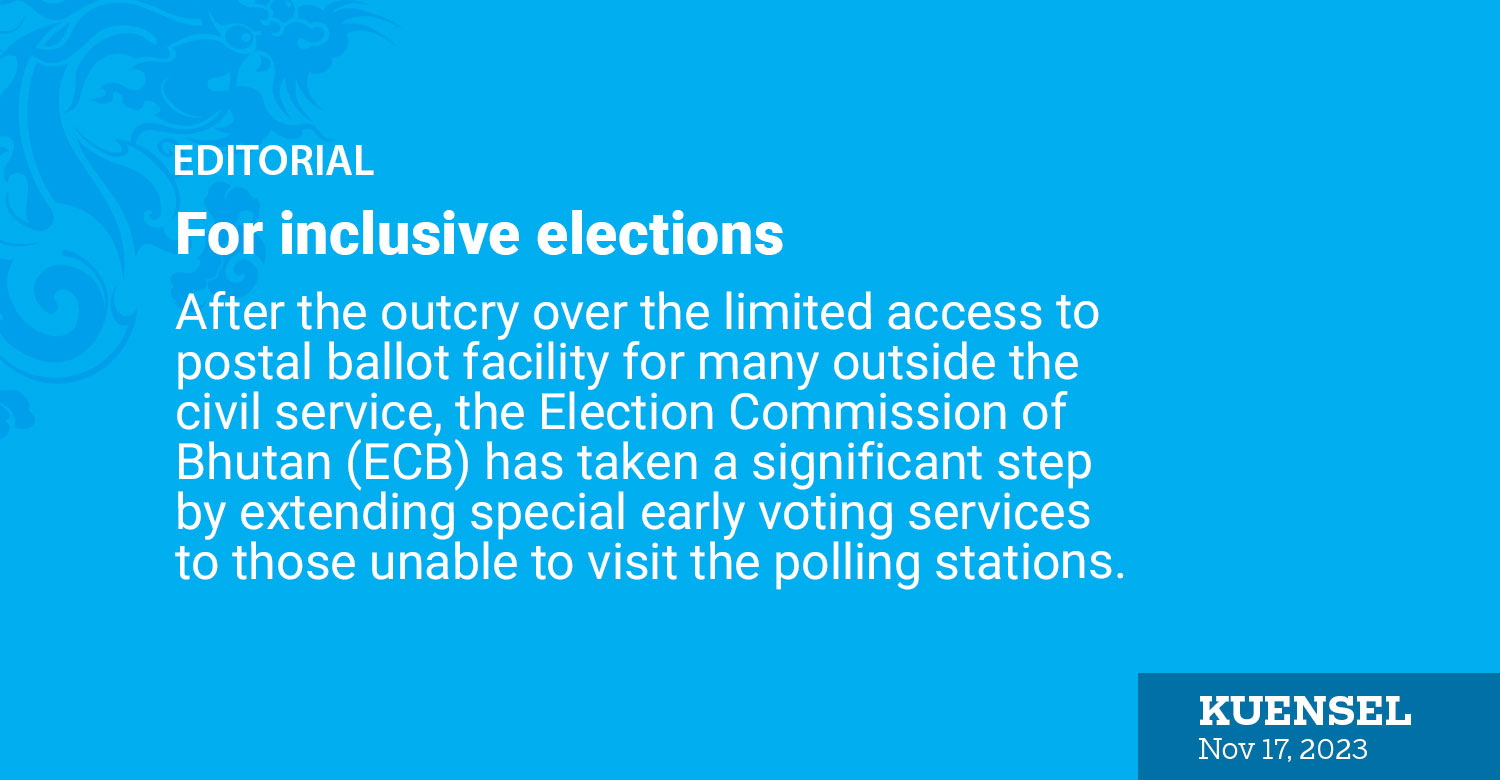After the outcry over the limited access to postal ballot facility for many outside the civil service, the Election Commission of Bhutan (ECB) has taken a significant step by extending special early voting services to those unable to visit the polling stations.
The facility is designed to address mainly the needs of persons with disabilities (PwDs) who face challenges in travelling to traditional polling stations.
The three-day special early voting for the primary round of election begins on November 23. The scope of the service extends beyond PwDs and includes those suffering from chronic diseases, individuals who are bedridden, and the elderly who may face challenges in mobility.
The commission reported that over 2,000 eligible individuals have registered to avail the service. However, the list of eligible individuals was compiled some time ago and the facility will not be available for those who develop mobility issues later and are not on the ECB’s list.
Nonetheless, the ECB’s introduction of early voting services stands as a commendable stride towards fostering an inclusive and accessible democratic process. One of the key aspects of our culture is its emphasis on community and collective well-being. By extending the right to vote to these adults, Bhutan is acknowledging and reinforcing the idea that decisions affecting the nation should be a collective effort, with every citizen playing a role in shaping the country’s destiny.
Of the total 496,836 voters eligible to participate in the fourth National Assembly elections, a substantial number – 125,949 individuals – have opted to register as postal voters. While this is higher than the number of voters choosing to vote through post during the recent National Council elections, it indicates that 370,887 voters will have to hit the polling stations in person.
From experience, we know buses will leave for the dzongkhags ferrying voters of all ages. The supporters of the political parties ensure to draw and deliver every willing soul to the polling stations. While it is not known how effectively it helps a party win such veiled practice of garnering support has helped increase voter turnout.
With the postal ballot facility not available to most voters unlike in the past local government and parliamentary elections, we need to do more than a free ride home to encourage turnout.
One option could be for offices and employers to arrange their work schedule to release non-critical staff on a longer leave to encourage them to visit their constituencies to exercise their adult franchise.


